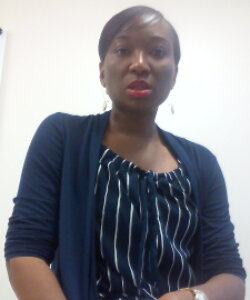
Contact Information
University of Illinois
3031 Chemistry Annex
601 S Mathews Ave
Urbana, IL, 61801
Biography
Dr. Marville received her BS and PhD degrees in Chemistry from The University of the West Indies. After graduation, she worked as a postdoctoral associate at Harbor Branch Oceanographic Institution, Inc. and then began teaching high school and later college chemistry before coming to the University of Illinois in 2010.
There is a list of principles that I use to guide me whenever I teach:
i. Be a story-teller: Link the theory being taught to the many chemical reactions that play a role in our everyday lives. I have found that the stories I use from my own life to help students understand or remember a concept, are the ones that my students remember best.
ii. Have high expectations for your students: It has been my experience that my students learn best when I have high expectations for them. I share these expectations, and the reason why I have them, both verbally and in the course policy. I often say to students, “The bar that must be cleared for you to pass this class has been set. I will not be lowering this bar but I will do all I can to prepare you to make a successful jump.” I want students to know that they will need to work hard to do well, but there are many persons that are eager and happy to help them with the material being taught once they ask us to.
iii. Model the behaviors you want your students to have: During my entire academic and professional careers, persons have told me that I am extremely organized and this makes working with me on projects easy. The biggest challenge several students face is learning how to manage their time. I spend a large quantity of time doing course preparation. Unless something happens during the semester that is beyond my control, the information in the course syllabus and policy I have prepared is followed to the letter. This is done so students can use these documents to create a working schedule that includes when they should study, do homework and other class assignments every day so they are less prone to becoming overwhelmed or making the mistake of cramming the night before major exams. It is also hoped that getting students to create and stick with a schedule can cement the importance of planning ahead, remaining informed, meeting deadlines and taking responsibility for their actions.
iv. Identify and fix misconceptions early: Waiting until a major assignment or test has been graded to discover that students are confused is a grave error. I therefore use i-clickers and pose questions while solving problems during my lectures to assess the understanding of a topic while it is being taught. This immediate feedback has helped me a great deal in assessing if my methods of instruction are being effective in promoting student learning and has allowed me to make modifications quickly where necessary.
v. Provide students with timely feedback about their work: It is important that all forms of student assessment be graded and returned to students as quickly as possible. This timely feedback provides students with the opportunity to hopefully learn from their mistakes and address the misconception or deficiency that led to this error before the next assessment.
vi. Form relationships: I have office hours multiple times a week. Students do not need to make an appointment for regular office hours and can simply come into my office during this time and get the help they need. Some students still find it very difficult to ask questions during a lecture and so providing times that they can ask me questions in a one-on-one setting assists those students in becoming more confident in expressing their thoughts and helps build their self-esteem.
I am asked several times annually to provide potential employers and program directors with frank assessments of the personal characteristics of several of my students. To do this well, I work hard to mentor students whenever I can and I genuinely try to get to know many of my students. Being there to listen to their fears about the future; being a shoulder to cry on many times when life does not go how they would have hoped and helping them to find ways to recover from a set-back is as much a part of my teaching as talking to them about chemistry concepts. I hope that my students appreciate that despite the size of my classes, I do care about each of them and want them to set goals for their lives, chase their dreams, shine bright and strive to be the very best person that they can be.
Awards and Honors
2009 Natural Products undergraduate research established at Salish Kootenai College was highlighted in the June edition of Chemical and Engineering News
2008 Principal Investigator of a grant awarded by the IDeA Networks of Biomedical Research Excellence (INBRE) MSU Award ID: G240-09-W2088